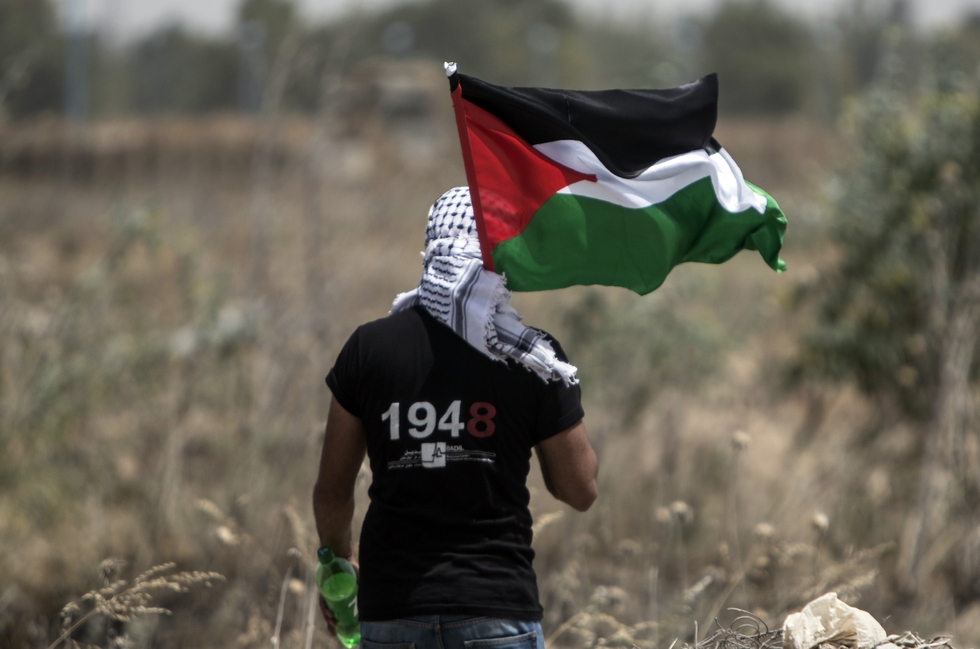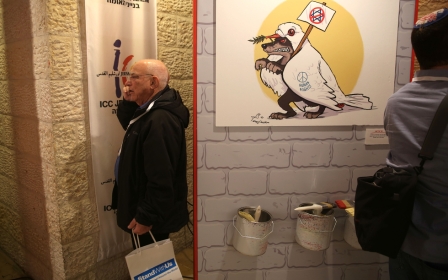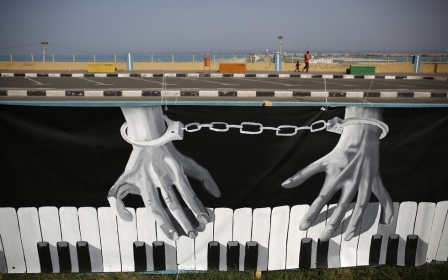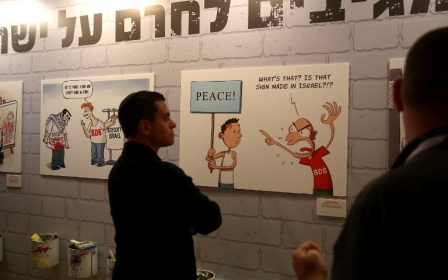The Palestinian struggle for self-determination: A new phase?

There are many reasons to consider the Palestinian struggle for self-determination a lost cause. Israel exerts unchallenged paramilitary control over the Palestinian people, a political reality accentuated periodically by brutal attacks on Gaza causing massive civilian casualties.
Organised Palestinian armed resistance has all but disappeared, limiting anti-Israeli violence to the desperation of individual Palestinians acting on their own and risking near-certain death by striking randomly with primitive knives at Israelis encountered on the street, especially soldiers and those thought to be settlers.
The internal dialogue in Israel is increasingly limited to whether it is better to proclaim an Israeli one-state solution or to go on living with the ambiguities of the status quo. This latter course means hardening an occupation regime that is already quasi-permanent, together with further extensions of the de facto annexations within the Palestinian territorial rump so that the settlement archipelago can continue to expand and Jerusalem become more Judaised to ensure undivided control over the entire city.
Israel feels decreasing pressure to pretend in public that it is receptive to a negotiated peace that leads to the establishment of an independent Palestinian state. The regional turbulence in the Middle East is also helpful to Israel as it shifts global attention to the Islamic State group, Syria, and waves of immigrants threatening the cohesion of the European Union. This gives Israel a free pass and makes Palestinian grievances barely visible on the radar screens of public opinion.
Yet such a picture, while accurate as far as it goes, is not the whole story. There are a series of developments that give Palestinians grounds for carrying on their struggle. The French initiative to revive bilateral negotiations is unlikely to challenge effectively Israel’s unilateralism. Nevertheless it does suggest a potential European shift away from accepting the United States as exclusively entitled to act as international intermediary. The Oslo framework that has dominated international diplomacy since 1993 was fatally flawed from its inception, allowing the United States to play this brokering role despite its undisguised partisanship. How could the Palestinians ever be expected to entrust their future to such a skewed "peace process"?
This deficient diplomacy was exposed for all to see, especially by tolerating continuous Israeli unlawful settlement expansion despite the gridlocked negotiations, and yet the diplomatic charade was allowed to go on because it was "the only game in town".
One question for the future is whether the French or Europeans can at some point create a more credible alternative diplomacy. Such a possibility is at last being tested, and there are signs that even this is worrying Tel Aviv enough to lead Israel to accept one more round of useless Oslo negotiations just to undermine this French ploy to change the auspices of Israel/Palestine diplomacy.
Realistically viewed, there is no present prospect of a political compromise achieving a sustainable peace without a change of leadership in Israel coupled with a shift in the balance of forces more favourable to Palestinian aspirations.
It is here we witness the beginnings of a new phase in the national struggle that the Palestinians have waged ever since the nakba occurred in 1948. Gone are the hopes of Palestinian rescue by the liberating armies of Arab neighbours or later, through organised Palestinian armed resistance. Gone also is any present hope of a negotiated peace that produces an end to occupation and a Palestinian state within 1967 borders.
Palestinian ‘statehood’
The Palestinian Authority (PA) continues to represent the Palestinian people in global settings, including at the UN. Many Palestinians who are living under occupation and in exile consider the PA to be both ineffectual and compromised by corruption and quasi-collaboration with the occupiers. The PA on its side, after going sheepishly along with the Oslo process for more than 20 years, has begun to pursue a more independent path to reach its goals.
Instead of seeking Israel’s agreement to a Palestinian state accompanied by the withdrawal of its military and police forces, the PA is relying on diplomatic unilateralism to establish Palestinian statehood as well as threatening judicial action to have Israeli policies and practices declared unlawful, even criminal.
In this regard, after being blocked by the United States in the UN Security Council, the PA obtained a favourable vote in the General Assembly, according it in 2012 the status of "observer state". The PA used this upgrading to adhere as a party to some widely ratified international treaties, to gain membership of UNESCO, and even to join the International Criminal Court. A year ago the PA also gained the right to fly the Palestinian flag alongside the flags of UN members at its New York headquarters.
On one level such steps seem a bridge to nowhere as the rigours of the occupation have intensified, and this form of "statehood" has brought the Palestinian people no everyday relief. The PA has established "a ghost state" with some of the formal trappings, but none of the governance structures associated with national sovereignty.
And yet Israel, backed by the United States, objects strenuously at every step taken along this path, and is obviously infuriated by PA initiatives based on international law. Israel’s concern is understandable as this PA approach amounts to a rejection of "the Washington only" door to a diplomatic solution, and formally puts Israel in the legally and morally awkward position of occupying indefinitely a state recognised by both the UN and some 130 governments around the world.
Recourse to BDS
What is also superseding these earlier phases of the Palestinian movement is a growing reliance on global civil society as the decisive site of struggle. The policy focus is upon various facets of the boycott, divestment, and sanctions campaign (or simply BDS) that is gaining momentum around the world, and especially in the West, including on American university campuses. This recourse to militant nonviolent tactics has symbolic and substantive potential, if the movement grows, to alter public opinion throughout the world, including in Israel and the United States.
In the end, as happened in South Africa, the Israeli public and leadership just might be induced to recalculate their interests sufficiently to become open to a genuine political compromise that finally and equally safeguards the security and rights of both peoples.
At this time, Israel is responding in a variety of rather high-profile ways. Its official line is to say that its continued healthy rate of economic growth shows that BDS is having a negligible economic impact. Its governmental behaviour suggests otherwise. Israeli think tanks and government officials now no longer hide their worries that BDS poses the greatest threat to Israel’s preferred future.
Smearing BDS
Israel has launched its own campaign to punish and intimidate those who support BDS, and even to criminalise advocacy.
The Israeli lobby has been mobilised around this anti-BDS agenda in the United States, pushing state legislatures to pass laws that punish corporations that boycott Israel by denying them access to the domestic market or declare that BDS activism is a form of hate speech that qualifies as anti-Semitism. Israel is even seeking common cause with liberal Zionist advocacy group J Street in the US to work together against BDS, a threat it previously derisively dismissed.
It is not new, of course, to brand critics of Israel as anti-Semites. Those of us who have tried to bear witness to Israeli wrongdoing have been so attacked with increasing venom over the course of the last decade or so. The attack on pro-Palestinian members of the UK Labour Party as anti-Semites is part of this Zionist pushback.
What is particularly disturbing is that many Western political leaders echo such sentiments, including even the current UN Secretary General Ban Ki-moon. Israel has no compunctions about attacking the UN as hostile and biased, while when convenient, invoking UN authority to discredit its critics.
It is notable that this latest phase of Palestinian national struggle is being waged nonviolently, and in a manner that accords with the best traditions of constitutional democracy. That Israel and Zionist hardliners should be opposing BDS by an ugly smear campaign exposes Israel’s weakness when it comes to the legitimacy of its policies and practices, and should give the Palestinians hope that their cause is far from lost.
- Richard Falk is an international law and international relations scholar who taught at Princeton University for 40 years. In 2008 he was also appointed by the UN to serve a six-year term as the Special Rapporteur on Palestinian human rights.
The views expressed in this article belong to the author and do not necessarily reflect the editorial policy of Middle East Eye.
Photo: A Palestinian youth waves the national flag as Israeli military digs in search of smuggling tunnels at the border east of Gaza city on 15 May, 2016 (AFP).
This article is available in French on Middle East Eye French edition.
New MEE newsletter: Jerusalem Dispatch
Sign up to get the latest insights and analysis on Israel-Palestine, alongside Turkey Unpacked and other MEE newsletters
Middle East Eye delivers independent and unrivalled coverage and analysis of the Middle East, North Africa and beyond. To learn more about republishing this content and the associated fees, please fill out this form. More about MEE can be found here.





